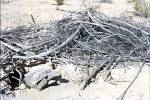Keep your home safe and warm this winter
(BPT) - This is the time of year when homes need a little TLC as winter’s harsh weather can batter windows, assault rooftops and damage pipes. Luckily, there are several easy tasks to include on home maintenance checklists and most of them are no-cost and low-cost chores that could end up saving homeowners big bucks.
“As always, water is your home’s biggest enemy,” says Eric Sanders, vice president of Risk Services at Fireman’s Fund Insurance Company. “Every year, water does more damage to homes than fire, but every year too many people forget to do the little things that protect their property.”
Burst pipes and indoor flooding can wreak havoc on your home and personal possessions. While faulty pipes can be a problem in any season, even well-maintained pipes can burst if they freeze – and they are much more likely to give way during winter when temperatures plunge.
A bit of preventative maintenance can help your family stay warm and dry all winter. Wrapping exposed water pipes with insulation is a quick and easy precaution.
Another excellent way to prevent indoor flooding is to install an automatic water shut-off valve. These devices cut off all water to your home when they sense unusually large amounts of water flow and can be integrated to your alarm system so that the alarm company is alerted to the emergency. Shut-off valves are a great idea for people who plan weekend trips or extended vacations and are also good for vacation homes that sit empty for long periods.
And if you do leave home this winter, keep the heat set to at least 55 degrees. Spending a little more on heating can prevent freezing in the pipes that run through exterior walls and foundations while you’re off enjoying a winter getaway.
When the weather turns really nasty and knocks out power, a backup generator will protect your home and family from winter’s worst ravages.
“If you have a backup generator, be sure that it’s connected to your home’s most vital systems: sump pumps, security and fire alarms,” says Sanders. “Many people simply wire generators into the ‘comfort circuits,’ like lighting, heating, cooking and refrigeration, and forget about the other systems running in the background. If the power goes out, you’ll want all your security and plumbing to keep right on working.”
While water is winter’s most invasive weapon, furnaces, boilers and chimneys represent serious fire risks if not properly maintained. A professional chimney sweep can remove soot and other combustible debris that builds up over time and boilers and furnaces should be inspected annually. Also, never use boiler or furnace rooms for storage.
Candles are always popular during the winter season. Don’t leave burning candles unattended and keep them away from flammable objects.
Finally, put new batteries in smoke and carbon monoxide detectors and test them to make sure they are in good working order.
In addition to the important safety ideas provided above, there are several incredibly easy things you can do to reduce your energy bills this winter, including:
* Install weather stripping around doors and windows, caulk exterior windows
* Reverse the direction of ceiling fans to recirculate warm air downward
* Install plastic shields on basement and attic windows
* Consider sealing off areas of the house that are rarely used
* Keep closet doors shut
* Move furniture away from heating vents
* Close the fireplace damper when not enjoying a fire
* Wear sweaters and slippers inside























